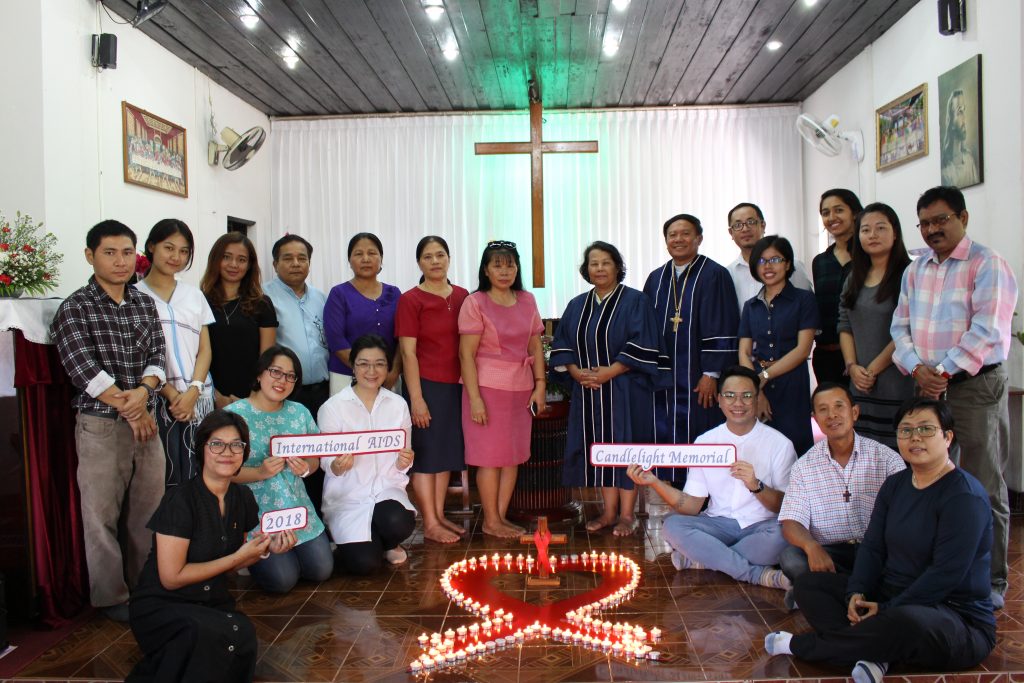CCA Observes International AIDS Candlelight Memorial 2018

The Christian Conference of Asia (CCA) observed the International AIDS Candlelight Memorial 2018 at a Sunday service held at the Chang Kham Church in Chiang Mai on 20 May 2018.
The service, jointly organised by CCA and the Church of Christ in Thailand, focused on this year’s theme ‘Reflecting on our Past, Preparing for our Future’.
International AIDS Candlelight Memorial is a special campaign held every year on the third Sunday of May.
The first Candlelight Memorial was held in 1983 in San Francisco and it drew thousands of people. It began a movement that would inspire countless others to call the attention of communities and national leadership in raising awareness on HIV and the AIDS epidemic.
The service which was led by Rev. Sanan Wutti and Rev. Dr. Chuleepran Srisoontorn at Chang Kham Church was packed with lively singing and emotional testimonies.
A young woman who served as an assistant pastor gave a moving testimony of her struggles and hopes, having been directly affected by the disease. She shared her experience on how God embraced her wholly without any prejudice and ended the testimony by challenging everyone to embody God’s love by accepting and loving all of our brothers and sisters who are affected with HIV and AIDS, regardless of their status.
In her sermon, Rev. Dr. Chuleepran commented that “we Christians are often reacting to HIV and AIDS but do nothing and frequently find ourselves giving moral judgments”.
“Our response as Christians in this issue should be exemplified by how God showed compassion, love and forgiveness to all. The love of God comes from our relationship with every human being and thus, acceptance and compassion are the keys to our Christian witness”, stated Rev. Dr. Chuleepran.
Dr. Mathews George Chunakara, General Secretary of CCA stated that “the initiative of observing the international candlelight service is part of CCA’s ongoing commitment to respond to HIV and AIDS and other related issues. The Church as a vibrant faith based community around the globe can play an important role in reducing stigma and discrimination, prevention, care and support for people living with HIV and AIDS”.
The CCA General Secretary further emphasized that “HIV/AIDS has been a special focus of the CCA and several skill building and advocacy programmes have been conducted to address the issue, along with efforts to build a HIV competent church and community”.










